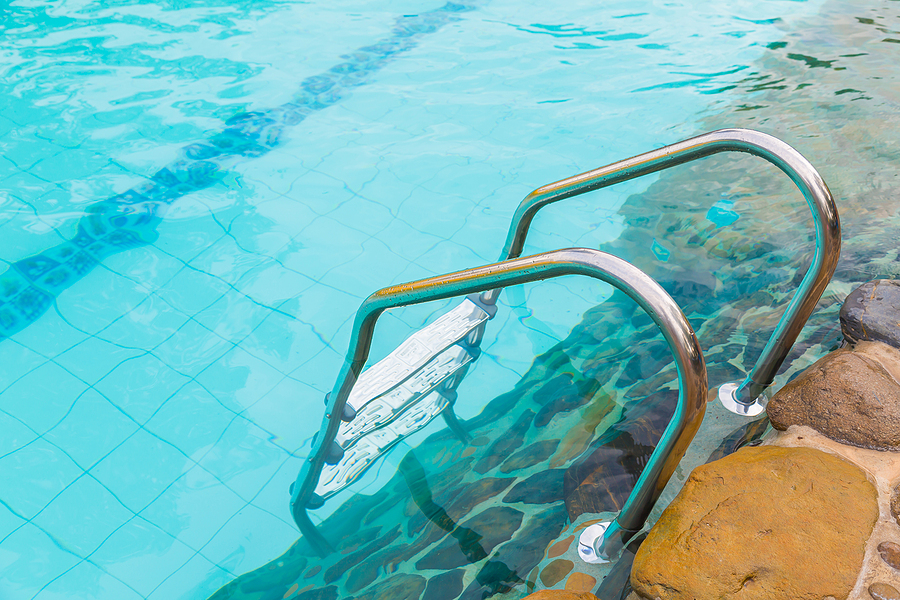Table of Contents
Swimming pools are a popular feature in many homes, hotels, and recreational areas across Mississippi. They offer relaxation and enjoyment for families and visitors. However, when safety protocols are ignored or neglected, swimming pools can become dangerous, leading to accidents that result in serious injuries or even fatalities.
If you or someone you know has been injured in a pool-related accident, it’s important to understand how liability works in these situations. Proving negligence is a key element in personal injury cases involving pools. This blog will discuss the legal process involved in proving negligence in pool injury cases and how you can seek compensation for your injuries.
Common Pool Injuries and Their Causes
Before diving into the legal aspects of pool-related injuries, it’s helpful to understand the types of injuries that commonly occur in and around pools. Some of the most frequent pool-related accidents include:
- Slips and falls: Wet pool decks and slippery surfaces can cause people to slip and fall, often leading to broken bones, head injuries, or sprained joints.
- Drownings or near-drownings: Drowning accidents can happen quickly, especially if the pool isn’t properly supervised, or if there are inadequate safety measures in place.
- Diving accidents: Improper diving, such as diving into shallow water, can lead to severe spinal cord injuries, broken necks, or other serious damage.
- Chemical burns or respiratory issues: Pools with improperly balanced chemicals can cause irritation to the skin, eyes, and respiratory system.
- Electrical accidents: Malfunctioning pool equipment can lead to electrical shocks, especially if there are exposed wires or faulty grounding systems.
Understanding the causes of these injuries is essential because proving negligence hinges on showing that a responsible party failed to uphold their duty of care to prevent these types of accidents.
The Role of Negligence in Pool Injury Claims
Negligence is the failure to take reasonable precautions to prevent harm to others. In the case of a pool-related injury, it is important to establish that the responsible party—whether it’s a property owner, pool operator, or manufacturer—was negligent in their actions or lack of actions. To prove negligence in a pool injury case, four key elements must be demonstrated:
Duty of Care
The defendant must have owed a duty of care to the injured person. In a pool injury case, the property owner or operator has a duty to maintain the pool area in a reasonably safe condition. This includes ensuring that the pool is clean, the water is safe, and that the pool area is free from hazards. For public pools, additional regulations may apply that increase the standard of care.
Breach of Duty
Once a duty of care is established, the next step is to show that the defendant breached that duty. A breach can occur in various ways, such as failing to properly maintain the pool or not providing adequate supervision. Examples include:
- Not putting up proper signage to warn of hazards (e.g., “No Diving” signs for shallow areas).
- Failing to maintain proper water chemistry.
- Not providing lifeguards or sufficient safety equipment.
- Not addressing known hazards, such as slippery pool decks, damaged pool ladders, or broken fencing.
Causation
After demonstrating that the duty of care was breached, the next element is proving that this breach directly caused the injury. For example, if someone slips and falls on a wet pool deck because the owner failed to post warning signs, you must show that the fall resulted from the lack of those signs. Causation can sometimes be tricky to prove, especially if there were multiple contributing factors, such as a pre-existing medical condition or another person’s actions.
Damages
Finally, to succeed in a personal injury claim, the injured party must show that they suffered actual damages. This can include physical injury, medical expenses, lost wages, and pain and suffering. For example, if a pool user suffers a broken arm from a fall, they would need to provide medical documentation of their injury, treatment costs, and how the injury has affected their life.
Key Steps to Take After a Pool Injury
If you’ve been injured in a pool-related accident, there are important steps you should take to protect your legal rights and gather evidence to support your claim.
Seek Medical Attention
The first priority after any injury is to seek medical treatment. Even if the injury seems minor at first, some pool-related injuries, such as head or neck trauma, can worsen over time. Prompt medical attention not only ensures that you receive proper care but also creates documentation of the injury that will be critical in proving damages later.
Document the Scene
Take photographs or videos of the pool area where the injury occurred, as well as any hazards that may have contributed to the accident. For example, if there was broken pool equipment, an uneven pool deck, or poor lighting, capturing these details can help demonstrate the property owner’s negligence. Also, note the time, date, and weather conditions, as these details can provide context for your injury.
Report the Incident
Notify the property owner or manager of the accident and make sure an official report is filed. If the injury occurred at a public pool, ask for a copy of the incident report. If you were at a private residence or business, you should still notify the property owner, so they are aware of the incident. Written documentation of the accident is vital when pursuing a claim.
Collect Witness Information
If there were any witnesses to the accident, get their contact information. Witnesses can provide valuable testimony about the circumstances surrounding the accident and can corroborate your version of events.
Keep Records of All Expenses
Keep track of all medical expenses related to the injury, including hospital bills, prescription costs, physical therapy, and any future medical treatments. Additionally, document any lost wages if the injury has kept you from working.
Common Defenses in Pool Injury Cases
When pursuing a pool injury claim, it’s also important to be aware of potential defenses the responsible party may raise. Some common defenses include:
- Contributory Negligence: The defendant may argue that the injured party was partially responsible for the accident. For example, if someone ignored pool rules or was behaving recklessly, they might try to reduce their liability by claiming contributory negligence. However, Mississippi follows a comparative fault rule, which means that even if you are partially at fault, you can still recover damages, though it may be reduced in proportion to your degree of fault.
- Assumption of Risk: In some cases, the defendant may argue that the injured party voluntarily assumed the risks associated with using the pool, particularly in cases involving diving accidents or swimming in dangerous conditions. However, this defense may not hold up if the property owner failed to warn the injured party of known hazards.
Why You Need an Experienced Attorney
Proving negligence in pool injury cases can be complicated. The responsible party may have significant resources or legal teams working to defend against your claim. Having an experienced personal injury attorney by your side can make a big difference in the outcome of your case. An attorney will help you navigate the legal process, gather evidence, negotiate with insurance companies, and represent your best interests in court if necessary.
Conclusion
Pool-related accidents can lead to severe injuries, and proving negligence is a crucial element in seeking compensation. To successfully pursue a claim, you need to demonstrate that the property owner or operator failed to maintain the pool in a safe condition, which directly caused your injury. By following the right steps and working with a skilled personal injury lawyer, you can increase your chances of securing the compensation you deserve for your medical expenses, lost wages, and pain and suffering.
If you or a loved one has been injured in a pool-related accident in Mississippi, reach out to a personal injury lawyer who can help you build a strong case and fight for justice.

